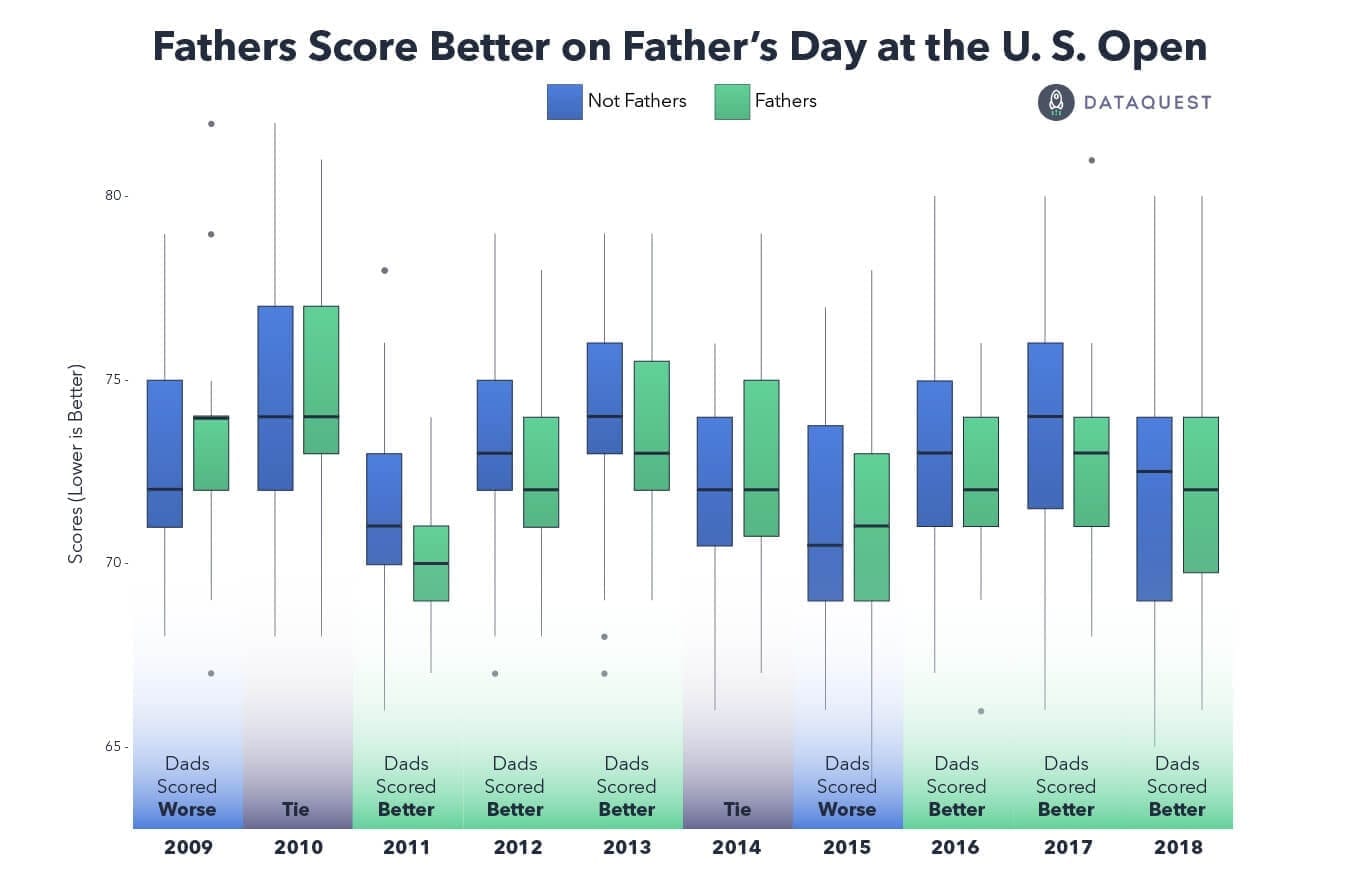For golf fans, the U.S. Open is one of the most exciting events to watch. For years, it has been scheduled in mid-June so that the final day of the tournament falls on Father’s Day. The holiday has been the source of some of the tournament’s most exciting moments, including last year when new father Tommy Fleetwood had an absolutely spectacular day and came within a single stroke of winning the tournament.
That performance made me wonder: do golfers who are fathers play better on Father’s Day?
It’s not as absurd a question as it might seem. Golf is a very mental game. Players have to focus in high pressure situations, and even the smallest bit of extra positivity could potentially make a difference.
So could being a father on Father’s Day confer some kind of small advantage? There’s no way to know for sure about causality, but the data suggests that whatever the reason, fathers do tend to play better than everyone else on Father’s Day.
To figure this out, I scraped data from the USGA’s U.S. Open website for every competing golfer’s Father’s day performance over the past ten years. Then, I pulled data from the PGA Tour website, which includes biographical data on each player, including the birthdays of their children (if they have any). This allowed me to figure out whether or not each player was a father or not on each Father’s Day of the past ten years, and analyze their performances accordingly.
Since the U.S. Open is played at different courses each year, there’s no way to compare performances from one year to the next, so the chart below shows the performances of players who were fathers compared with players who weren’t fathers for each individual year of the tournament, starting in 2009.

A box plot, with extreme outlier scores plotted as dots.
The black lines in each box of the above chart represent the median scores for non-fathers (blue) and fathers (green). As you can see, fathers have had a median score lower than non-fathers on Father’s Day for six of the past ten years (recall that in golf, the lowest score wins).
Fathers and non-fathers tied in terms of median scores in two of the other years. Non-fathers’ median U.S. Open scores have beaten fathers just twice in the past ten Father’s Days!
Admittedly, this may not mean that fathers have any special Father’s Day powers. The U.S. Open does include amateur golfers, whose scores tend to be higher than the pros. These amateurs may also be younger on average than the pros, and thus less likely to be parents, which could be give fathers an advantage.
It’s also worth pointing out that the margins here are small — in most cases, the difference is only a stroke or two.
Still, the numbers don’t lie: whatever the reason, fathers have performed better than other golfers on Father’s Day over the past ten years of the U.S. Open.
Perhaps Tiger Woods, Dustin Johnson, and the other fathers in this weekend’s tournament can hope for a bit of a boost as they attempt to stop the young Brooks Koepka, who is not a father, from nabbing a third straight U.S. Open win.
